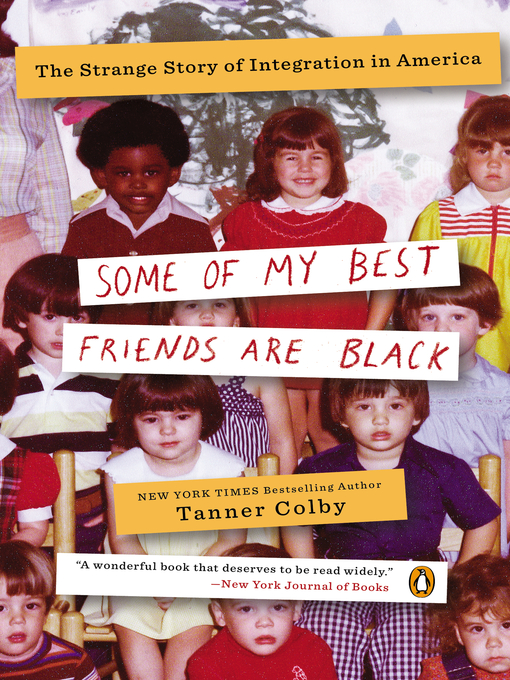Frank, funny, and incisive, Some of My Best Friends Are Black offers a profoundly honest portrait of race in America. In a book that is part reportage, part history, part social commentary, Tanner Colby explores why the civil rights movement ultimately produced such little true integration in schools, neighborhoods, offices, and churches—the very places where social change needed to unfold. Weaving together the personal, intimate stories of everyday people—black and white—Colby reveals the strange, sordid history of what was supposed to be the end of Jim Crow, but turned out to be more of the same with no name. He shows us how far we have come in our journey to leave mistrust and anger behind—and how far all of us have left to go.
- New Non-fiction eBooks
- Most popular
- New Fiction eBooks
- New YA eBook
- New York Times Bestsellers - Adult Fiction eBooks (Updated December 29th)
- New York Times Bestsellers - Adult Non-Fiction eBooks (Updated December 29th)
- Tales as Old as Time - Disney Inspired Stories
- See all ebooks collections
- New Non-fiction eAudiobooks
- Most popular
- New Fiction eAudiobooks
- New YA eAudio
- New York Times Bestsellers - Adult Fiction Audiobooks (Updated December 29th)
- New York Times Bestsellers - Adult Non-Fiction Audiobooks (Updated December 29th)
- See all audiobooks collections
- Popular magazines
- Business & Finance Magazines
- Cooking, Food & Drink
- Craft Magazines
- Fashion Magazines
- Gaming
- Gardening and Landscape
- Kids Magazines
- Health and Fitness Magazines
- Hobbies
- House and Home
- Men's magazines
- Science & Technology Magazines
- See all magazines collections

